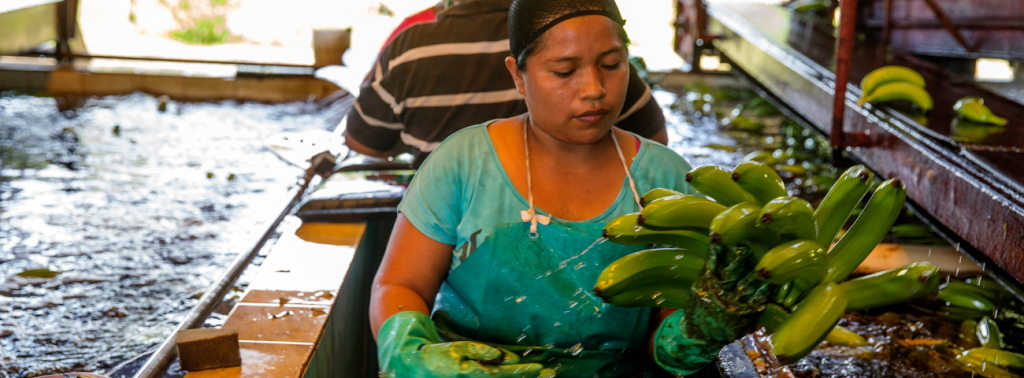Emerging evidence through impact assessments has found that Fairtrade can make a significant difference to farmers’ and workers’ lives.
Economic benefits
- The Fairtrade Minimum Price is supporting the farmers that grow products such as cocoa, coffee and bananas to become more income-secure and less vulnerable to poverty.
- Fairtrade is gradually empowering communities to organise into cooperatives and improve their negotiating position within the supply chain. This can enable them to negotiate a higher price for their product than the conventional market price.
- Fairtrade improves access to agricultural services like organic training and premium markets. As a result farmers have an incentive to farm better and sell more.
- Additional income through the Fairtrade Premium is supporting better farming, strong cooperatives and investment in collective assets to improve crops and yields.
Environmental benefits
- The Fairtrade Standards cover key areas for environmental protection, including energy and greenhouse gas emission reduction, soil and water quality, pest management, biodiversity protection, prohibition of genetically modified organisms and harmful chemicals and waste management.
- The Fairtrade Standards promote training for farmers, which can include advice on switching to environmentally friendly practices, such as developing nutrient-rich soils that support healthy plants and encouraging wildlife to help control pests and diseases.
- For some farmers, the Fairtrade (and organic) Standards have resulted in switches to less toxic pesticides, which, as well as being better for the environment, has a positive impact on producers’ health.
- Fairtrade can provide access to finance, support and expertise in tackling climate change, supporting long-term environmental sustainability.
Social benefits
- Farmers and workers who choose to participate in Fairtrade often feel a real sense of control over their future with greater power and voice.
- Fairtrade can support workers to realise their rights and negotiate the terms and conditions of their work through trade unions and collective bargaining.
- Fairtrade can provide producer support and expertise in deepening gender equality.
- For workers employed on Fairtrade certified plantations, investment of the Fairtrade Premium into education, better housing, better schools and medical facilities is highly valued.
- Investment of the Fairtrade Premium by co-operatives in community development projects is improving the quality of lives of rural communities.
Achieving development impact is a long-term process and results vary significantly based on regional context, product and supply chain specifics and external factors.
